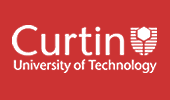
305377 v.2 Bachelor of Science (Nanotechnology) (Honours)BSc(Hons)(Curtin) IntroductionThis course is designed for prospective students intending to become professional scientists and technologists in the emerging field of nanotechnology. Nanotechnology encompasses the science and technology of understanding and constructing the "very small" and has application in the development of very small scale ultra-efficient processes and machines to ultimately change the way we live. It is expected to have a major impact on almost all areas of science, technology and society over the next century. Nanotechnology is effectively already here in areas such as nanochemistry, microelectronics, nanophysical methods of analysis, and specialist materials research and development. In the future nanotechnology will also play a major role in a wide range of medical diagnosis and treatments, and yet to be invented industrial processes involving nanorobots and machines. Students considering a career in applied physics and/or chemistry will find the course and prospective employment possibilities of particular interest. Course Entry Requirements/PrerequisitesTEE Chemistry, Physics and Calculus or Applicable Mathematics. Specific RequirementsThe STAT is not accepted for entry to this course. NoteIf Introductory Calculus is not studied in Year 11, a bridging unit is required. Able students with high aggregates or other evidence of academic achievement who do not meet formal entry requirements may still be considered. Enquiries should be directed to the Head of Department. Recognition of Prior LearningApplications for recognition of prior learning are assessed on an individual basis. Duration and AvailabilityThe course is four years full-time or equivalent part-time study. Two intakes are offered each year, in March and August. Prospective students should note that places may not always be available for the August intake. Intermediate AwardsA student who has successfully completed all the requirements of the Bachelor of Science (Physics) may apply under exceptional circumstance provisions for graduation in that award subject to the approval of the Course Coordinator. A student who has not met the University Honours Entrance Requirements at the end of the third year will be eligible to apply for graduation in the Bachelor of Science (Physics) subject to approval of the Course coordinator. For further definition refer to the Statement and Awards section under General Information. Course OrganisationThe first four semesters of this course focus on the development of fundamentals in chemistry, physics, and mathematics. At the same time, a range of options in physics, chemistry, engineering, computational techniques and nanotechnology will enable students to tailor the course to suit their specific interests. The final two semesters include advanced studies in nanotechnolgy together with a nanotechnology research project supervised by research staff from the Departments of Applied Chemistry and/or Applied Physics. Professional RecognitionThe Royal Australian Chemical Institute and the Australian Institute of Physics both recognise the course as fulfilling the academic requirements for graduate membership of the respective societies. On obtaining the necessary experience graduates will be admitted to full membership of either institute. Career OpportunitiesNanotechnology graduates will be employed in industry or government organisations, for example, as materials characterisation scientists, as research scientist in micro analytical facilities, and as medical physicists in hospitals. Additional Course ExpensesStudents may be expected to purchase a number of textbooks, readers and other vital study materials. In addition, students may also need to contribute some of the cost of consumables, which varies depending on the area of study.
Availability
The information displayed above refers to study periods and locations where the course is available for first time entry. Students are normally only offered or admitted to a course once. *The course itself may not be available either solely internally or externally but individual units may be offered in either or both of those modes. Prospective students should contact the Course Coordinator for further information. Click here for a printable version of this page |
 |
|||||||||||||||||||||||||||||||||||||||||||||||||||||||||||||||||||||||||||||||||||||||||||||||||||||||||||||||||||||||||||||||||||||||||||||||||||||||||||||||||||||||||||||||||||||||||||||||||||||||||||||||||||||||||||||||||||||||||||||||||||||||||||||||||||||||||||||||||||||||||||||||||||||||||||||||||||||||||||||||||||||||||||||||||||||||||||||||||||||||||||||||||||||||||||||||||||||||||||||||||||||||||||||||||||||||||||||||||||||||||||||||||||||||||||||||